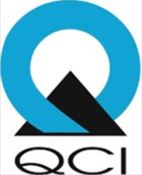Quality Assurance in Ayurveda Institutions: NCISM's Vision and the Role of QCI
DOI:
https://doi.org/10.21760/jaims.10.8.1Keywords:
NCISM, Quality Council of India (QCI), NABET, NABH, Ayurveda education reform, Institutional grading, MES Regulations 2024, AccreditationAbstract
The rapid transformation of Ayurveda education in India has brought the dual imperatives of regulatory reform and quality assurance into sharp focus. The National Commission for Indian System of Medicine (NCISM) has undertaken major initiatives to restructure Ayurveda institutions through competency-based education, standardized infrastructure norms, and institutional performance ratings. Simultaneously, the Quality Council of India (QCI) has emerged as a critical partner, offering independent evaluations, third-party accreditations, and institutional benchmarking aligned with global standards. This article examines the collaborative efforts of NCISM and QCI in shaping a transparent, accountable, and excellence-driven academic ecosystem within Ayurveda colleges. It highlights the significance of QCI's frameworks - such as NABET and NABH - in enhancing educational outcomes, clinical preparedness, and institutional credibility. Through this integration, the traditional wisdom of Ayurveda is being empowered to meet modern pedagogical expectations and global healthcare benchmarks, marking a pivotal shift in India's integrative medical education landscape.
Downloads
References
National Commission for Indian System of Medicine. Minimum Essential Standards, Assessment and Rating for Undergraduate Ayurveda Colleges and Attached Teaching Hospitals Regulations, 2024. New Delhi: NCISM; 2024.
NCISM. Framework for Assessment and Rating of Ayurveda Colleges for the A.Y. 2025–26. New Delhi: NCISM; 2024. Available from: https://ncismindia.org/Framewor-for-Assessment-and-Rating-of-Ayurveda-Colleges-for-the-A.Y.%202025-26.pdf
Quality Council of India. About QCI and its constituent boards. New Delhi: QCI; 2023. Available from: https://qcin.org
Anand Katti. The dawn of assessment and rating for institutions of Indian System of Medicine. RGUHS J AYUSH Sci. 2024;11(1):v. Available from: https://journalgrid.com/view/article/rjas/12434168
NABET. Accreditation of Education and Training Institutions. New Delhi: Quality Council of India; 2023. Available from: https://nabet.qci.org.in
NABH. Hospital Accreditation Standards for AYUSH Hospitals. New Delhi: Quality Council of India; 2023. Available from: https://nabh.co















